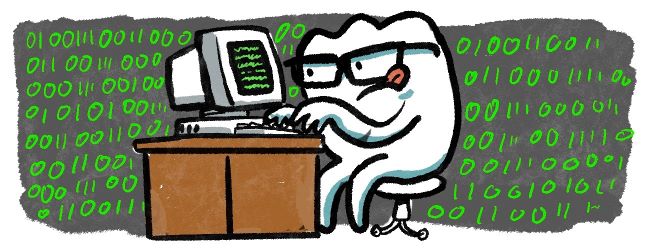2023 CDT Coding Updates
 By Elizabeth Shin Perry, D.M.D.
By Elizabeth Shin Perry, D.M.D.
2023 is shaping up to be an exciting year for endodontists as we are seeing a return to normalcy in dentistry. As we head into the new year, it is a good time to review and adopt the most recent CDT coding updates that affect our practices. Be sure to download the recently updated Endodontists’ Guide to CDT, available on our Dental Claims Coding & Submission page. This guide includes all endodontic CDT codes and frequently used non-endodontic codes.
The recently released ADA CDT 2023 Current Dental Terminology Book contains the most recent changes to the dental code set. Included for the 2023 CDT coding changes are 22 new CDT codes, 14 revised codes, and two deleted codes. While this year none of the changes are specific to the specialty of endodontics, a review of the updates presents an opportunity for practitioners and their teams to streamline their dental coding procedures for better documentation and reimbursement from third party payers.
One addition in the CDT codes that is relevant for endodontists is the introduction of a code by the American Association of Oral and Maxillofacial Surgery. The code is as follows:
D7509 marsupialization (decompression) of odontogenic cyst
Surgical decompression of a large cystic lesion by creating a long-term open pocket or pouch and placement of a drain
This new code can be used in endodontic situations when a large periapical cystic lesion is treated with a decompression procedure in which the area is incised, irrigated, and a surgical drain is placed for continued irrigation and debridement. For large periapical cystic lesions, decompression is a conservative procedure which may be used for select cases to facilitate healing without periapical surgery.
In the past few years we have seen an evolution of the CDT dental codes to better reflect the intricacies of endodontic procedures. This allows for more accurate reporting of services provided with the objective that practitioners are reimbursed appropriately for their services. Additionally, they allow endodontic practices to capture the value of their services more accurately, and to present a clearer picture of their patients’ needs to insurance providers. Coverage and reimbursement for any specific code is dependent upon the policy of a patient’s dental benefit plan. However, it is important to remember that unless a code is utilized and submitted, dental benefit plans will not have reference to frequency of use or fees associated with the code. As a specialty, by consistently coding for endodontic procedures as they are performed, we can influence third party payers and their policies for the future.
Dr. Elizabeth Shin Perry has been practicing endodontics in Westfield, Mass., since 1995 and holds a faculty appointment at the Harvard School of Dental Medicine. She is District I Director of the AAE, a Diplomate of the American Board of Endodontics, and is the ADA Code Maintenance Committee Representative on the AAE’s Practice Affairs Committee.




